The Checker Maven
The World's Most Widely Read Checkers and Draughts Publication
Bob Newell, Editor-in-Chief
Published every Saturday morning in Honolulu, Hawai`i
Noticing missing images? An explanation is here.
Neatly Trapped
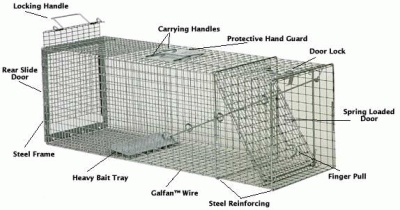
In today's entry from our Checker School series, we have a most interesting position, as shown below.

BLACK
Black to Play and Win
B:W25,K12,K2:BK11,10,K1.
In this position, Black's mobility is definitely in the plus column. And as our current World Champion has often stated, checkers is all about mobility. In fact, Black has a very neat win here. The position is almost 120 years old and is attributed to R. D. Yates. Well over a century later we find that it still entertains and instructs. It's a fitting tribute to the timeless attraction and value of the game of checkers.
Try to trap White, but don't be trapped yourself: clicking on Read More will move you to the solution, a sample game, and explanatory notes.![]()
A Simple Little Fellow

Our title is how famed problemist Tommie Wiswell referred to today's puzzler, which he drew from actual play. It's one of those cases in which the win is "obvious" but actually demonstrating how it's done is the real trick.
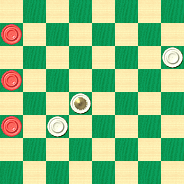
WHITE
White to Play and Win
W:W12,K18,22:B5,13,21.
The Black pieces are all off on the side of the board, while White has good mobility and a king to boot. So the win should be easy, shouldn't it? But Mr. Wiswell notes that in play over the board, the White player missed the winning continuation. Can you do better?
When you've settled on the winning course of action, click on Read More to see the solution.![]()
What Happened to "Let's Play Checkers"?

We've been promising an ebook version of the classic Let's Play Checkers, by Kenneth Grover and Tommie Wiswell, for some little while now. Here's what's been going on.
First, the ebook edition turned out to be a lot more effort than we expected. We'd rather be late than produce less than a top-quality edition, and typesetting this book is simply taking a lot of time to do right.
But there is another issue, one that we ran into at a fairly late stage in the project. While our initial research indicated that the book was in the public domain, and therefore eligible for reissue by us, we have recently learned that copyright claims had in fact been asserted, and therefore we must now seek permission to republish the book.
We're in the process of trying to locate the copyright claimant, which is difficult enough in and of itself; then we'll need to ask for the necessary releases, something which the claimant may or may not be willing to grant. Under current copyright law, the book won't go into the public domain until the year 2035! (We believe this is excessive and out of tune with the original intent of copyright legislation, but that's another whole topic.)
Of course we're hoping for the best and for a speedy result. We'll keep you informed as we go along.![]()
Draughts on a Winter's Eve
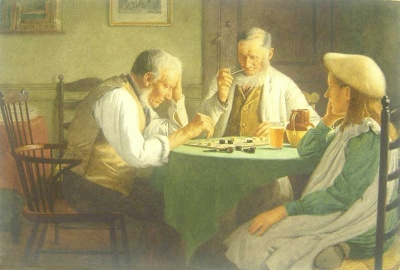
Sometimes, on a cold winter's eve when the snow lay in heaps upon the ground, my neighbor would visit and we would sit at the table and play not a few games of draughts. My daughter would bring us something warm to drink, or even, at times, a pitcher of ale; my neighbor always would remark about how fine was my ale, thinking, I wager, to be urged on to a second glass. We would play until the fire burned low on some of those nights, and daughter would sit and watch all the while. How hard it was the next morning to rise early for work, and how equally difficult it must have been for her to rise for school! Still, we enjoyed our games, and she seemed to enjoy sitting by every bit as much.
So it was one evening that, with the hour getting late and the room starting to chill, we decided to contest one final game. And what a game it turned out to be, one to remember all through the years! My neighbor and I, being very closely matched as to skill and temperment, had pretty evenly divided the score thus far, and of course we were both rather hoping to win this last match and carry the honors of the evening. I had the Black men, he the White, and the game proceeded in this manner.
1. 9-14 22-18
2. 5-9 24-19
3. 11-15 18x11
4. 8x24 28x19
5. 4-8 25-22
6. 9-13 29-25
7. 8-11 22-18
8. 14-17 21x14
9. 10x17 18-15
10. 11x18 23x14
11. 7-11 25-22
12. 11-16 14-10
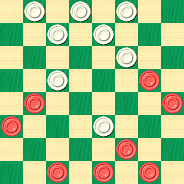
BLACK
Black to Play and Draw
B:W32,31,30,27,26,22,19,10:B17,16,13,12,6,3,2,1.
"Alas," I cried, "I fear all is lost. Good neighbor, I believe the evening is yours." Although I did always essay to win in a gracious manner and equally so to lose in a sportsmanlike fashion, still, I am sure, there was disappointment in my voice.
But suddenly, to my great surprise--- and, I am certain, my neighbor's as well--- my daughter spoke out and said, "Oh, father, I think not; surely the game is drawn!"
"Daughter," said I, "there is no shame in my loss. Pray do not detract from the skill shown by our good neighbor in his command of the White pieces in this excellently played game."
"Oh, no, father, that I would not do," she replied, "but still, though well played by you and our neighbor alike, even so, the game is most surely drawn."
At this moment our neighbor smiled, put down his pipe, and said, "Aye, then, good father, let your spirited young lass contest the finish in your stead!"
"Oh, father, may I?" asked she, and I knew she was not to be denied; whereupon, I moved my chair to the side, she moved her own round to the Black side of the board, and the play went on.
For the solution, and the rest of our story, just click on Read More.![]()
Three Years of Publication
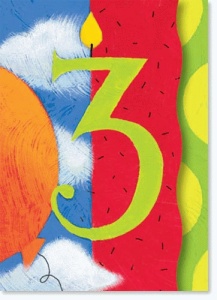
Today The Checker Maven completes three years of uninterrupted, on-time publication. During that time, we have been fortunate to hold the interest and attention of thousands of readers from all around the world, who have made us what is surely the most widely-read periodical publication in the centuries-old history of the game of checkers. We're very proud of that distinction, and in return we can only wish to continue to publish and to provide Saturday-morning pleasure to all of you who are kind enough to drop by our electronic home.
During this past year, we've done less electronic book publication than we might have wished, and a new on-line feature or two didn't get completed, as we weren't able to function at full force for some months due to medical issues that required our concentrated attention. But that is all in the past, and the prospects for the year ahead look bright. Our plans include, in addition to our regular weekly columns, two e-books and a very exciting new interactive checker experience.
Thank you, one and all, for your continued support and patronage!![]()
Thanksgiving Weekend

In the United States it's Thanksgiving weekend, bringing one of our favorite times of family, food, and celebration. In the spirit of the weekend, we'd like to bring you an especially elegant checker problem which we're sure will provide you with much pleasure. It's part of our Checker School series and looks like this.

WHITE
White to Play and Win
W:WK10,20,22:B1,9,28.
The problem is due to R. Martins, and while the solution is not overly long, it may surprise you; and, like Thanksgiving dinner, the problem is incredibly rich in content. Take your time, have a slice of pumpkin pie and a cup of coffee, and enjoy. When you're all done, click on Read More to see the solution, a sample game, and detailed explanatory notes.![]()
A Little Deceiver

Willie Ryan, possibly the only checkerist ever to achieve anything close to "rock star" status, takes us back to his youth in this month's installment from Tricks Traps & Shots of the Checkerboard. Let's listen as Willie tells us about a trap he learned in those early years. Editior's note: the photo above is definitely not Willie Ryan!
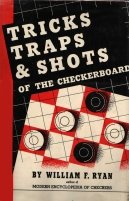
"When I was just a boy of 13, I learned this trap on the Defiance opening by John Drummond, which enabled me to win more than a few games. The basic germ or idea utilized in this example is known as the "Brooklyn"--- a tactical device that has almost as many variations of application as the versatile in-and-outer.
| 11-15 | 29-25 | 15-24 |
| 23-19 | 11-15 | 28-19 |
| 9-14 | 25-22 | 4-8 |
| 27-23 | 7-11 | 22-18 |
| 8-11 | 24-20—A | 6-9 |
| 22-18 | 15-24 | 18-15—B, |
| 15-22 | 28-19 | forming the |
| 25-9 | 11-15 | diagram. |
| 5-14 | 32-28 |

BLACK
Black to Play and Win
B:W31,30,26,23,21,20,19,15:B14,12,10,9,8,3,2,1.
A---The old and somewhat difficult Andrew Anderson defense. A better defense for white is: 22-18, 15-22, 26-17, 11-15, 24-20, etc., as given in my book, Scientific Checkers Made Easy.
B---To the gallows! The correct play here is: 31-27, 8-11, 18-15, 11-18, 21-17, 14-21, 23-5, 2-6, 27-23, 10-15, 19-10, 6-15, 20-16, 12-19, 23-16, 15-19, 16-11, 19-24, 26-23, ending in a draw."
Young or old, one thing is certain: clicking on Read More will show you the snappy and pleasing solution.![]()
Uncle Ben's Porch: An Argument with Mom

I had a bit of an argument with Mom this morning, and that's never a good way to start off the day. It was Saturday morning, and nearly every Saturday for more than a year I'd gone over to Uncle Ben's for a couple of hours, to sit on his porch, drink his wonderful lemonade, and learn something new about checkers.
But Mom had said that we're two months into a new school year, I'm in fifth grade now, and I need to spend a few extra hours hitting the books, as I hadn't exactly gotten off to a good start in English and math. Besides, she said, you can't be bothering Uncle Ben all the time; the elderly gent can't be expected to entertain children every single week!
I pointed out that Uncle Ben seemed to really look forward to my visits and that he might be disappointed if I didn't show up. Besides, I said (repeating back a few lines I'd heard from Uncle Ben himself), checkers helps a student with logical thinking and the application of reason. (I'm glad Mom didn't ask me to explain what all of that really meant, though.)
After a little while Mom relented and let me go, with a final caution to not stay too long and wear out Uncle Ben's patience or hospitality. Still, I didn't feel very good about the whole incident, and when I arrived at Uncle Ben's and sat down in one of his porch chairs, I couldn't help but blurt out the whole story.
"Well, Tommy," Uncle Ben said after hearing me out, "listening to your Mom and doing as she says is very important, and I shouldn't discourage you from doing so."
At these words, my heart started to sink and I was sure Uncle Ben was going to send me straight home. Certainly, he realized this as he added, "No, no, Tommy, I'm not going to send you off. But we need to make a little deal, one that you need to tell your mother about when we've shaken on it."
"Deal?" I said, unsure of what was coming.
"Yes, a nice gentleman's agreement. The one part of the deal is that you can come here and visit every Saturday that you wish ... but the other part is that your grades have to all be above whatever mark your mother decides. So if she says that you have to have nothing less than a 'B' in every subject, then you have to do that well in school," Uncle Ben concluded.
"But ... but ...." I stammered.
"No 'buts', Tommy! I know, you're worried that your mother will ask you to get all "A"s or something really hard. But I know your mom and I know she'll be fair about it. She'll just expect you to do your part. So, is it a deal, then?"
"Yes, sir," I said, and we shook hands on it. Uncle Ben was right, Mom would be fair, and I did want to keep my grades up, though I knew it would be hard work.
"Well then!" exclaimed Uncle Ben, "all this business talk makes a man thirsty!" And before you could blink twice, Uncle Ben had placed glasses of frosty lemonade on the table in front of us, and turned his attention to the checkerboard.

"You've been coming along fast," he said, "and so today we're going to try something a little harder. It's a bit like school; as you move up in grades, the work gets harder, but you learn more and more all the time. What do you make of this? Here's one in which whoever moves first will win."
This was the position Uncle Ben had set up for me.

WHITE
Either to Play and Win
W:W20,21,23,32:B1,10,12,13.
I took a long, careful drink of lemonade, and all at once, everything seemed clear. "Hey, Uncle Ben, I've got it!" I said proudly, and began to move the men to demonstrate the solution.
What do you make of this problem? Work it through and then click on Read More to see the solution, a sample game, and a large helping of additional illustrated examples.![]()
Maybe Not Quite A Speed Problem

The first Saturday of each month we often offer a speed problem, featuring our relentless Javascript clock, and this month we return to that theme. But today's problem might not be quite a speed problem.
To be sure, the better checkerists out there will likely come up with the solution in short order. But others may perhaps need a little more time. And so, to accommodate everyone, we're being especially generous and allowing a whole two minutes for you to find the solution before the clock runs out. Aren't we the kind ones?
Click on the link below when you're ready to give it a try.
November Speed Problem (moderate difficulty)
Whether you were speedy or not, clicking on Read More will show you the solution in a jiffy.![]()
Win or Draw? It's Fifty-Fifty!

This month in our Checker School column you have a fifty-fifty chance of getting the right answer even if you don't know a thing about checkers! Here's the position we're going to consider.
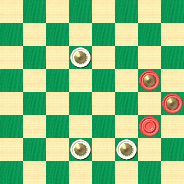
BLACK
Black to Play
B:WK23,K7,K6:BK17,K13,9.
Only two moves look possible for Black in this tough situation.
Consider: 9-14 loses quickly to 7-2 followed by 6-9, while 17-14 goes down almost as quickly via 6-10 14-17 23-18 17-21 10-14.
That just leaves 17-21 and 17-22.
One of these two allows White to win; it's known as Wardell's Win. The other obtains a draw for Black, and goes by the name Sweeney's Draw. All you have to do is say which is which! So, even if you just guess at the solution, you have even odds of getting it right!
Of course, all of you two-fisted checkerists will undoubtedly want to go on and demonstrate just how the win or draw takes place ... won't you?
Whether you work it all out or just play the odds, there's one sure thing: clicking on Read More will give you the answers, sample games, and explanatory notes, all courtesy of Ben Boland and his classic book Famous Positions in the Game of Checkers.![]()
The Checker Maven is produced at editorial offices in Honolulu, Hawai`i, as a completely non-commercial public service from which no profit is obtained or sought. Original material is Copyright © 2004-2025 Avi Gobbler Publishing. Other material is public domain, as attributed, or licensed under Creative Commons. Information presented on this site is offered as-is, at no cost, and bears no express or implied warranty as to accuracy or usability. You agree that you use such information entirely at your own risk. No liabilities of any kind under any legal theory whatsoever are accepted. The Checker Maven is dedicated to the memory of Mr. Bob Newell, Sr.

